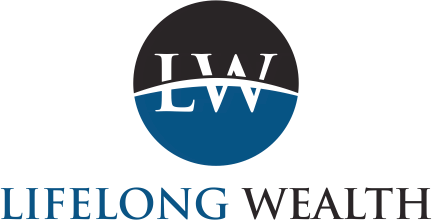Financial advice costs vary dramatically – here is what you should actually expect to pay.
If you’re like many other Australians starting to explore professional financial advice in 2025, one of your first questions will no doubt be: how much does it actually cost?
The answer depends on a few factors – but the most important insight is this: financial advice should deliver value that far exceeds its price tag. As Kent Thomas, Certified Financial Planner and Senior Financial Planner at Lifelong Wealth, explains:
“The benefit of good financial advice is either quantifiable – like tax savings & better returns – or emotional, like peace of mind and confidence to make decisions. In both cases, the cost should feel worth it.”

This article is your complete guide to understanding the real costs, fee models, and value of financial advice in Australia today, with guidance straight from our team at Lifelong Wealth to help you navigate a sometimes confusing landscape and make an informed, confident decision.
Types of Financial Advice Fee Structures
1. Fee-for-Service
Fee-for-service is the most transparent and flexible fee model for financial advice in Australia, and it’s the one we employ at Lifelong Wealth. Instead of complex commissions or scaling percentage-based fees, our clients only pay for the time and expertise involved in crafting personalised advice and implementing the investment of the funds under management.
There are two common formats:
- Project-based pricing – quoted upfront after understanding your goals and mapping out the required work.
- Hourly rates – typically range from $110 to $550 per hour, depending on the staff member’s experience level.
Kent Thomas outlines how this works at Lifelong Wealth:
“We quote our costs upfront, whether for a standalone financial plan or for ongoing advice under our 12-month Fixed Term Agreements.
This is because we encourage our clients to view this as a business decision.
If they feel the benefits of the advice outweigh the costs, then it makes sense to factor it in as Good Value for Money when making their decision – and vice versa if it doesn’t stack up.”
A typical quote in this case might be:
- $4,500 for advice construction
- $1,800 for implementation
If that same couple were also wanting ongoing financial advice, then the costs might be:
- $4,500 for advice construction
- $0 for implementation (waived as they are ongoing clients)
- $4,700 12-mth Fixed Term Agreement (begins after implementation)
The advantage? Clients know the costs in advance, can weigh them against the expected benefits and returns, and avoid any unexpected surprises.
2. Asset-Based Fees
This model charges a percentage of your assets under management – usually 0.5% to 2% annually. While still used overseas, it’s less common in Australia today.
It works best for clients who need ongoing investment management without complex strategy work.
Pros:
- Scales with your wealth
- Incentivises growth
Cons:
- May not reflect actual workload
- Can become expensive over time
3. Commission-Based Fees
In Australia, commissions are only permitted on insurance products, such as life or income protection insurance. As Kent puts it:
“Commissions help offset the cost of setup for insurance, which can be time-consuming and intensive. But they’re not paid if the policy doesn’t proceed, so they need to be carefully disclosed.”
Average Financial Advice Costs in Australia (2025)
Costs vary significantly depending on your financial needs – but here’s a breakdown of what you might expect.
| Service Type | Typical “Australia-wide” Cost Range |
| Initial consultation | $0 – $550 |
| Comprehensive financial plan | $2,800 – $20,000 |
| Implementation services | $0 – $20,000 |
| Ongoing financial advice | $3,000 – $40,000 annually |
| Insurance-only advice | $500 – $4,000 |
| Investment management advice | 0.8% – 1% of portfolio |
These figures reflect a very wide spectrum of client needs – from simple superannuation questions to complex multi-entity estate strategies.
“Most advisors will happily offer a quick chat or initial discovery call to help narrow down where you sit on the pricing spectrum. That alone can provide clarity and confidence before committing.”
– Kent Thomas, Lifelong Wealth
For detailed insights on what’s typically included in a comprehensive plan, visit our Retirement Planning or Superannuation Consulting pages.
A quick discovery call with Lifelong Wealth can help you understand what category you fall into and receive a personalised quote.
What Determines the Cost of Financial Advice?
Just like building a home, financial planning costs depend on the size and complexity of the job. Common pricing factors include:
- Complexity – Simple retirement strategies vs. complex trust structures
- Service inclusions – Does the fee cover research, modelling, documentation and follow-up?
- Advisor seniority – Senior Certified Financial Planners vs. junior support staff
- Location – Brisbane city vs. regional areas
Kent explains:
“A lower quote might apply to a familiar, straightforward case that can be handled by support staff. A higher quote typically involves bespoke work, more risk, or liaison with lawyers or accountants.”
Financial Advice is About ROI
Ultimately, the real question is not what does it cost? but rather what do you get back in return?
Whether it’s strategic tax planning that can save you thousands, better investment alignment, or freeing up time and stress – quality financial advice should deliver tangible returns that improve your quality of life.
“It’s not uncommon that the savings from tax and super structuring alone more than cover the advice fees – before factoring in the additional gains from avoiding poor decisions & mistakes.
You should also assess the value of time saved and having Peace of Mind about your financial situation.”
– Kent Thomas
So before you rule out the cost factor, ask yourself: what’s the cost of not having a plan?
Free vs Paid Financial Advice – Who to Trust?
Free financial advice from reputable sources like moneysmart.gov.au or your super fund can be a great starting point for self-motivated individuals who want to get their bearings.
Doing some initial research before speaking to a financial planner can help you ask the right questions and identify your key goals.
However, it’s important to remember that paid financial advice is what takes you to the next level. When you’re ready to develop a personalised, strategic plan – or you’re suddenly facing uncertainty about your financial future – working with a professional financial planner is critical.
Some of the most important times to seek expert advice include:
- Planning for or transitioning into retirement
- Structuring your tax affairs
- Investing strategically
- Managing inheritance or estate planning
- Navigating trusts, SMSFs, or business assets
Tailored advice from a Certified Financial Planner gives you access to not just technical expertise, but confidence, peace of mind, and measurable outcomes where it matters most.
Lifelong Wealth’s Fee Philosophy
At Lifelong Wealth, pricing is designed to be clear, fair, and value-aligned.
We offer:
- A free 15-minute consultation to understand your goals
- Transparent, project-based pricing with no hidden fees
- Ongoing advice tailored to your evolving needs
Typical Pricing Example
- $4,500 – Research and strategy construction
- $1,800 – Implementation (waived if joining a 12-month Fixed Term Agreement)
- $5,200 p.a. – Ongoing advice package, including annual review and access to your planner
“Clients should never feel uncertain about pricing. Our job is to quote clearly, so they can weigh the cost against the real benefit to their financial wellbeing.”
– Kent Thomas
Take the First Step – Speak with Kent and the Team
If you’re wondering whether financial advice is right for you – or what it would cost – why not start with a free 15-minute discovery call?
You can book directly with Kent Thomas, Certified Financial Planner and Senior Planner at Lifelong Wealth, or with any of our expert team of CFPs and Financial Planners.
Or call us today to learn how Lifelong Wealth can kick of your wealth creation journey!



